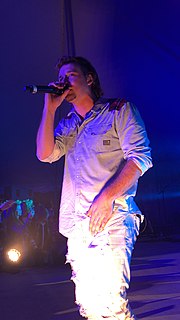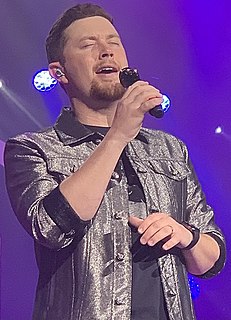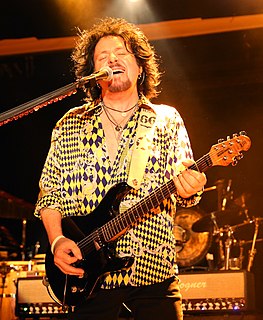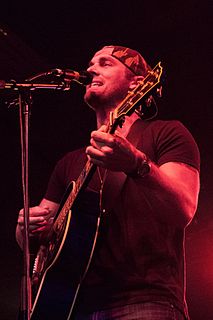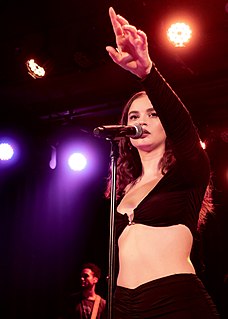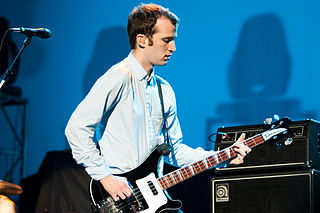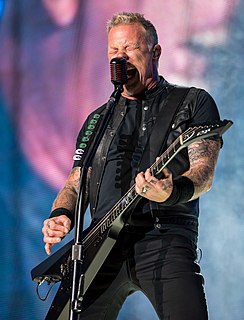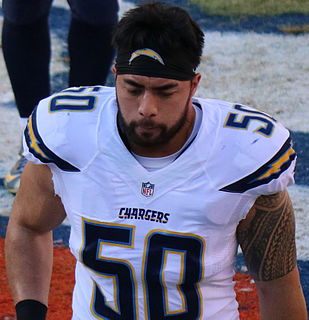A Quote by Morgan Wallen
I wanted to put a song out there to let people know who I was and, at the same time, help me set apart from a lot of different people in country radio.
Related Quotes
'Boneless,' even though we were thinking about servicing it to radio, it made more sense putting a vocal on there. This was actually the first time that I really looked at doing a song for radio and kind of let go of some control and listened to a lot of different radio pluggers and had Ultra come in and help out with ideas.
The recording process was basically me meeting with different writers, going into their studio, starting a song and just hanging out and chatting and getting to know how they work. Everybody has a different writing process so there was a lot of getting to know people, which can be fun and stressful at the same time.
I wrote 'Turn Your Radio On' in 1937, and it was published in 1938. At this time radio was relatively new to the rural people, especially gospel music programs. I had become alert to the necessity of creating song titles, themes, and plots, and frequently people would call me and say, 'Turn your radio on, Albert, they're singing one of your songs on such-and-such a station.' It finally dawned on me to use their quote, 'Turn your radio on,' as a theme for a religious originated song, and this was the beginning of 'Turn Your Radio On' as we know it.
The power of a label and radio and a booking agency and all that - you never know until you experience it the first time, but being able to have a song on radio, but then go play a show for people that have heard the song on radio, and having it sung back to you, is - I don't know how to describe it.
Before moving to L.A., I was working with a lot of people who were manipulating me, where they either wanted to put things out immediately or didn't - I was on everybody else's time frame. But once I was on my own, I was like, 'You know what? I'm going to do this right and take my time, and I'll put things out only when I'm ready.'
I did it a little bit in college, but now I've been doing it more. But yeah, it's not, I think you can definitely have a sense of humour about it. Like a lot of the time I'll finish my set with 'Sandstorm' by Darude - do you know that song? That's a funny song. People also go apeshit when you play it. But at the same time, it's not like the whole thing is a joke.
I work with a lot of different charities, and by that I don't mean merely by giving money, but by really getting involved hands-on. I've always said that one of the reasons why I was put on this Earth was to help people. That's something I've always enjoyed both here in America and if I have the opportunity when I'm traveling out of the country. For example, I like to visit orphanages to spend time with the children. That's very important to me.
There was a time when people would go search out underground records. Now, underground means free, and people don't really care for it. So now artists tend to go more pop and look for the radio. You know, the radio never wanted you to speak about anything, so the music is kinda influenced by the hands of the radio which wants to homogenize it and dilute it and sanitize it. And for the most part, nobody's takin' the time to seek out the cats that are still tryin' to talk, so they have a difficult time being heard, like Chuck D said.
We were the chosen rejects. We chose not to be apart of the popular crowd. I mean, I can rember a lot of times the more popular people, the 'jock type' of people who were into sports, and staying clean, and brushing there teeth all the time, they always asked me if I wanted to join their little club, and i decided not to, you know, I would rather hang out with the people who didn't get picked for the baseball team, you know, who smoke cigarettes and listen to rock 'n' roll music.
